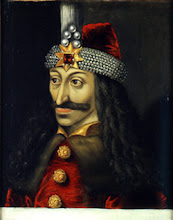The Lies Behind 'Free Trade'
By Chalmers Johnson
2-12-8- Ha-Joon Chang is a Cambridge economist who specializes
- in the abject poverty of the Third World and its people, groups,
- nations, and empires, and their doctrines that are responsible
- for this condition. He won the Gunnar Myrdal Prize for his book "Kicking Away
- the Ladder: Development Strategy in Historical Perspective" (2002), and he
- shared the 2005 Wassily Leontief
- Prize for his contributions to "Rethinking Development in
- the 21st Century". The title of his 2002 book comes from the
- German political economist Friedrich List, who in 1841
- criticized Britain for preaching free trade to other countries
- while having achieved its own economic supremacy through
- high tariffs and extensive subsidies. He accused the British
- of "kicking away the ladder" that they had climbed to reach
- the world's top economic position. Chang's other, more
- technical books include "The Political Economy of
- Industrial Policy" (1994) and "Reclaiming Development:
- An Economic Policy Handbook for Activists and
- Policymakers" (2004).
-
- His new book is a discursive, well-written account of
- what he calls the "Bad Samaritan", "people in the rich
- countries who preach free markets and free trade to the
- poor countries in order to capture larger shares of the
- latter's markets and preempt the emergence of possible
- competitors. They are saying 'do as we say, not as we did'
- and act as Bad Samaritans, taking advantage of others who
- are in trouble." Bad Samaritans is intended for a literate
- audience of generalists and eschews the sort of exotica that
- peppers most economic writing these days - there is not a
- single simultaneous equation in the book and many of Chang's examples are taken from his own experiences as a South
- Korean born in 1963.
-
- Ha-Joon Chang, "Bad Samaritans: The Myth of Free
- Trade and the Secret History of Capitalism" (Bloomsbury
- Press, 2007)
-
- Ha-Joon Chang's life is conterminous with his country's
- advance from being one of the poorest on Earth - with a
- 1961 yearly income of $82 per person, less than half the
- $179 per capital income in Ghana at that time - to the
- manufacturing powerhouse of today, with a 2004 per
- capita income of $13,980. South Korea did not get there
- by following the advice of the Bad Samaritans. Chang's
- prologue contains a wonderful account of how post-Korean
- War trade restrictions and governmental supervision
- fostered such projects as POSCO (Pohang Iron and Steel
- Company), which began life as a state-owned enterprise
- that was refused support from the World Bank in a country
- without any iron ore or coking coal and with a prohibition
- on trade with China. Now privatized, POSCO is the world's
- third largest steel company. This was also the period in
- which Samsung subsidized its infant electronics
- subsidiaries for over a decade with money made in
- textiles and sugar refining. Today Samsung dominates
- flat-panel TVs and cell phones in much of East Asia and
- the world.
Read more.....
Saturday, February 16, 2008
The Scam Of "Free" Trade
Posted by
Ŏdĕşşa
at
7:40 AM
![]()
![]()
Labels: America Today
Subscribe to:
Post Comments (Atom)



No comments:
Post a Comment